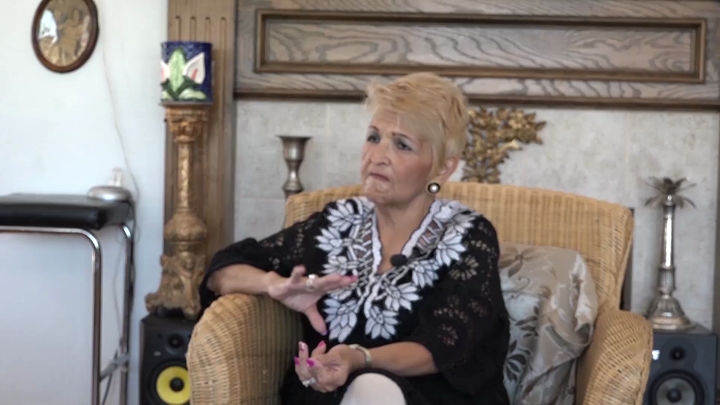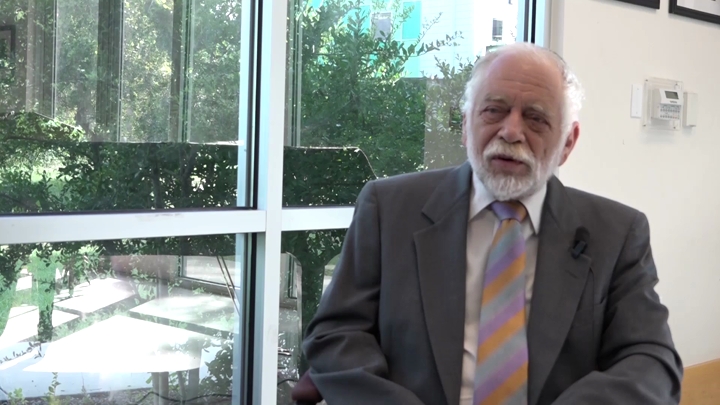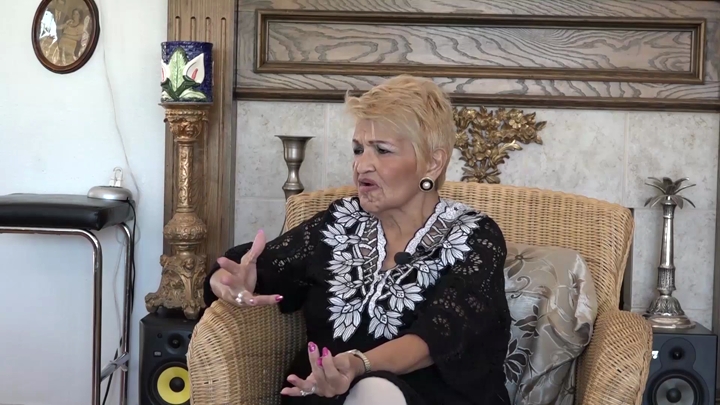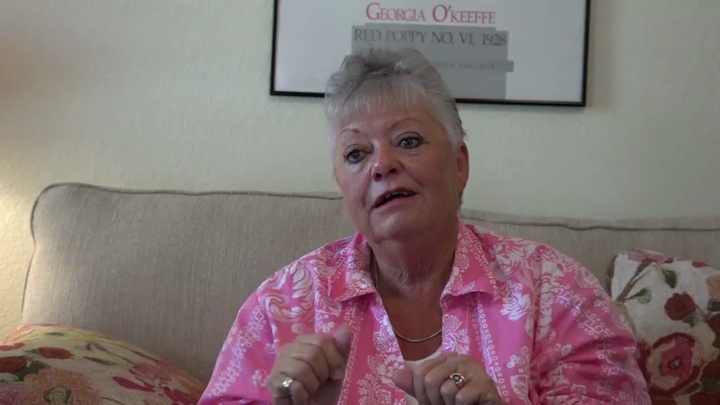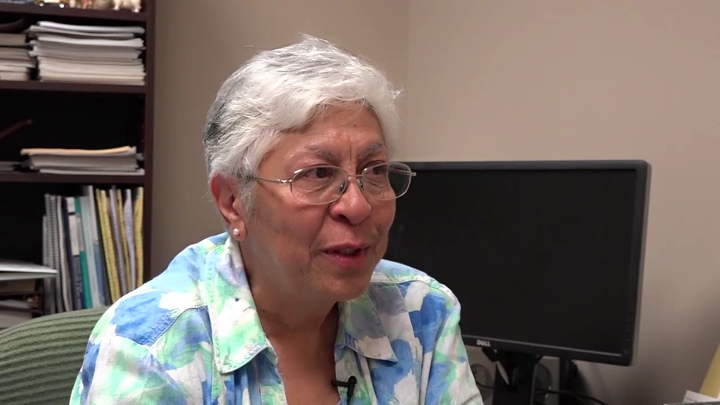Harrington / Migrant Camps in Michigan
sign up or sign in to add/edit transcript
Harrington : Of course the growers did not like this naturally, so they would be on us from their property. Even though what I did I would say I’m from the church and wanted to invite people to mass. Underneath that flyer where is the one about health conditions and all of that. They figured it out because it wasn’t that much of a game for them. So they would band us from the fields and from the camps. Sometimes we snuck in. What we wanted to do was to get a lawsuit going to say that the growers could not have a company town. Company town is when they have exclusive control. So what we did is sent and this really young nice looking nun who got kicked off the property, naturally. She becomes the plaintive, and the case. Or at least the star witness in the case. I remember, this is really funny. So the judges, we filed, not us, but the lawyers did, and this is one of Johnson’s poverty programs. UMO I was funded. United migrant workers for opportunity was founded by the poverty grants that Johnson was giving out for the great society. These lawyers file the case in federal court in Grand Rapids. I’ll never forget I was up there watching the hearing and was going to testify. Betty Loubti, That’s the nuns name, where is testifying and man she was a homerun she was so good and so nice. The growers name was Joe hassle, which was an appropriate name. His wife was Harriet hassle, they were well name for this scenario. Anyway, at noon the judge calls a lunch break. The lawyers started having this banter and the quart room right after the judge leaves. Somebody said where is the judge going and where does he eats. The bailiff said he doesn’t eat he goes to mass. You could just see hassle space. So they settled, that was the end of that lawsuit. They near the writing on the wall for that one. That was the kind of work that we did and I got progressively more involved in it. So the last couple of years I went over to the legal program when I was in law school. I left the church program and went over to legal program and did that kind of work. Arionus : Would you say this early experience in the migrant camps help inform your politics or did it politicize times you in anyway? Harrington : Sure, it politicized me but so was my education. I was getting more and more political. And that was the problem with the church, staying in the seminary, you couldn’t be political. You also were stuck with whatever the Bishop wanted you to do which could be quite arbitrary. When I was in the seminary it was in the days of Vatican II, which is the council that liberalize the church. We all were into that and it was also the John Kennedy era that was radicalizing us too. And then Johnson comes along and he continues that. I think the greater struggle for me was to not be the typical liberal that you really had to work on the grounds and staff. You could not be the café liberal. Sitting there solving the worlds problems over coffee. Arionus : You had a great part in that paper you sent over, you said if you want to do community work you have to actually be part of the community. Can you expand on that and tell me what you meant by that? Harrington : My philosophy was, am I believe was, you're going to work with farmworkers because you live with farmworkers. When we move to South Texas you could live on the white side of town or the brown side of town. So we lived on the brown side of town. You don’t have to, but you become part of that community. So the people interested in the union or the farmworkers are having quinceras or birthdays, you go over. You become part of that. The lawyer, my view should not be an elitist. The lawyer is there to help support the movement, obviously you are going to have some leadership stuff going on because you have a law degree but it should be there to support what’s going on in the movement. And if you’re going to support the movement you have to live in the movement. You have to be there with the people because that is how you win the confidence number one. But equally if not more important you have to understand the problems. Our salaries were very very low. I think I started off at $5000 a year. Then it went up to 66 I think that’s how it went. So it was tough, really, really tough. It helped me understand what a flat tire meant and what it meant to my life, and how it disrupted it. And how I had to run around and find something cheap, and what it meant to have old cars. What a burden it was on you. That is what I think is really important to understand that. Somebody says, “I couldn’t come today because of my car.” You understand what that means, it’s not just that they didn’t feel like coming but it was a burden. When you’re poor it is a real burden. You have to scrape together the money to get the car fixed or you have to fix it yourself, or you have to find a friends and then you have to train to do that. That is why I think it’s important.
| Interview | Interview with Jim Harrington |
| Subjects | Migration › Migrant Labor |
| Work › Working Conditions | |
| Work › Agricultural Work | |
| Housing › Sub-standard Housing | |
| Religion | |
| Religion › Religious Denominations | |
| Community Organizations › Community outreach | |
| Education › Higher Education | |
| Court Cases | |
| Historic Periods › Mid-1960s [Exact Date Unknown] | |
| Historic Periods › Late 1960s [Exact Date Unknown] | |
| Ideology › Liberalism | |
| People › Kennedy, John F. | |
| People › Johnson, Lyndon Baines | |
| Tags | sign up or sign in to add/edit tags |
| Interview date | 2016-06-13 |
| Interview source | CRBB Summer 2016 |
| Interviewees | Harrington, Jim |
| Locations | Lansing, MI |
| Duration | 00:06:45 |
| Citation | "Migrant Camps in Michigan ," from Jim Harrington oral history interview with , June 13, 2016, Austin, Civil Rights in Black and Brown Interview Database, https://crbb.tcu.edu/clips/5488/migrant-camps-in-michigan, accessed February 26, 2026 |


